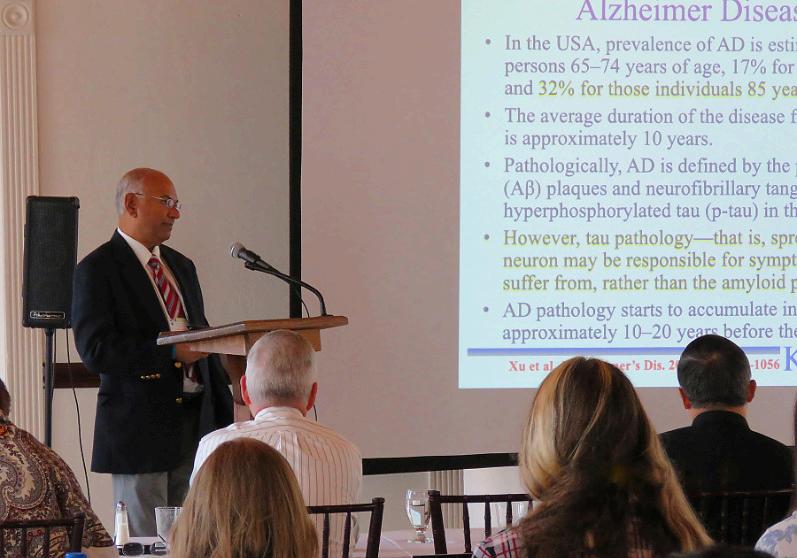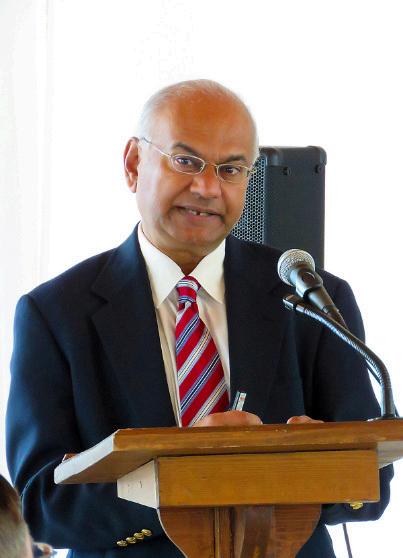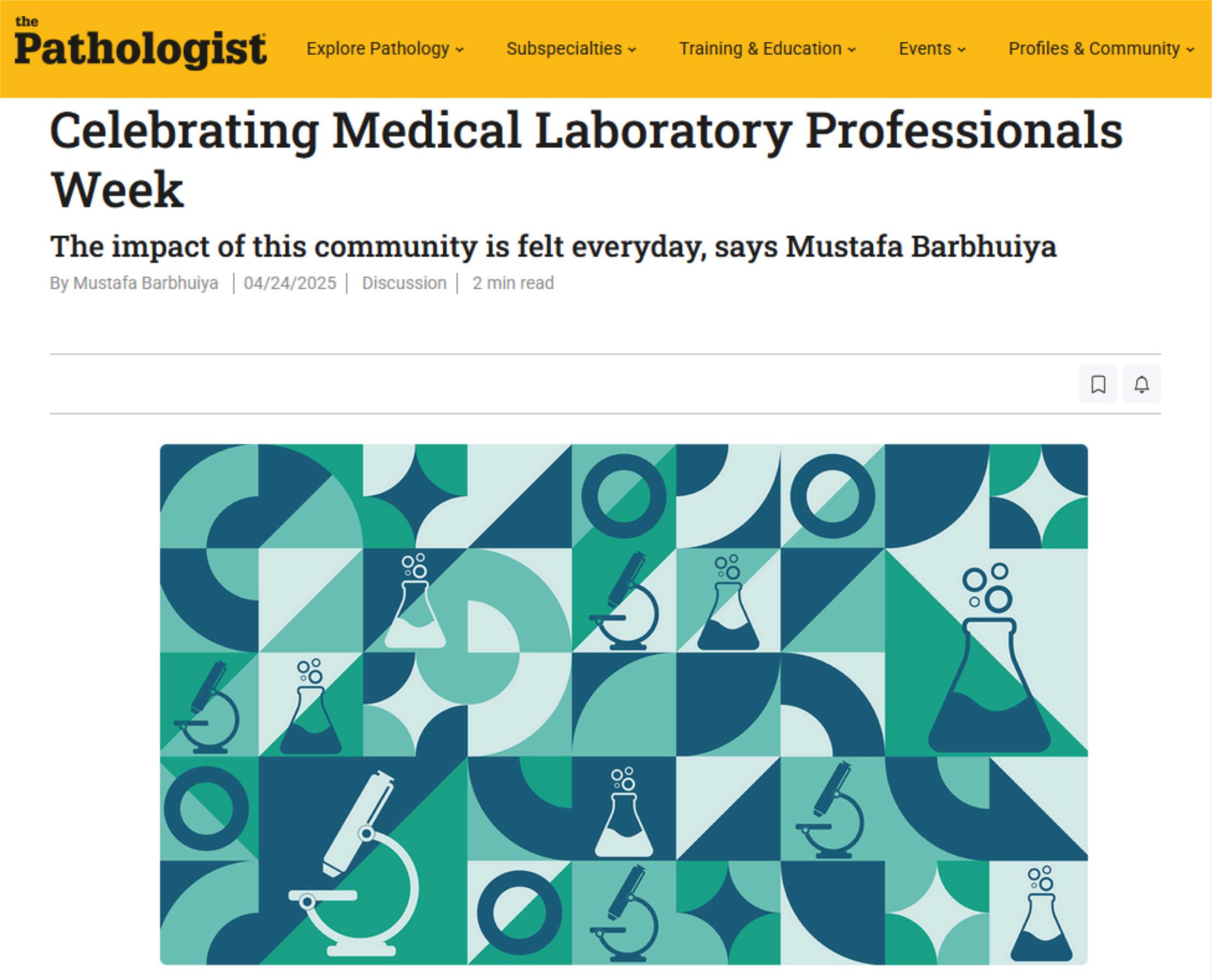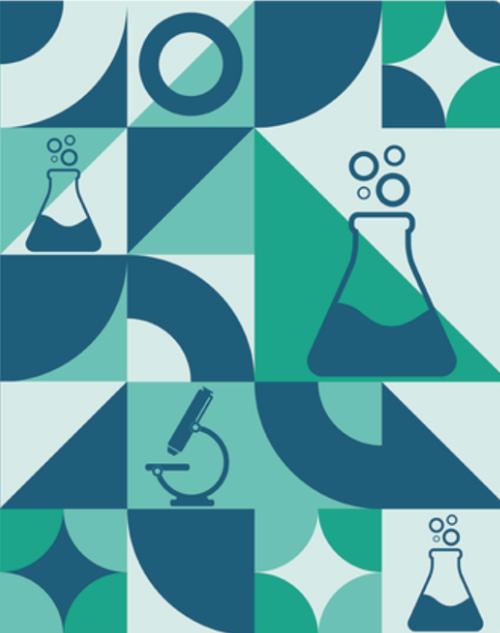
5 minute read
Senior Fellow Interview: Dr. Amitava Dasgupta (continued)
continuedfrompage14
Hunter supported and helped me by providing me with laboratory space and research techs. That is the main reason I was productive in my job and also received industrial funding for research. Professor Hunter introduced me to the Association of Clinical Scientists (ACS) and he invited me to give a talk in 2006. I enjoyed the meeting, because it was a friendly group of people and I decided to join ACS and started to send papers for publication. At that time Dr. Hunter paid for the publication fee of the journal if a resident was a co-author. I always enjoyed mentoring residents and started publishing papers in the Annals of Clinical and Laboratory Sciences. At that time, Professor Nina Tatevian, then the editor-in-chief, guided me and was kind enough to include me on the editorial board in 2014. I am still on the editorial board. This journal helped me a lot because reviewers always gave me a chance to improve my manuscript instead of rejecting it outright, which is the practice of many other reputed journals. I have published 30 papers in Annals of Clinical and Laboratory Science over the course of my 37 years of career and plan to send manuscripts in the future for consideration until I retire, probably within the next 3-5 years.
Advertisement
Claus: What unexpected turns did you have in your career?
Dasgupta: I love literature and wanted to be an English professor and publish poetry. My father advised me to write poetry as a hobby.
“Being an English major is a difficult path,” he told me. He added that based on the way I look, I should be considered very lucky if a woman decided to marry me. “As an unemployed poet that will be impossible, so select chemistry which is your second love,” my father suggested.
So, I became a clinical chemist and toxicologist.
Claus: How has ACS helped you in your career?
Dasgupta: ACS provided me an opportunity to give talks before a friendly audience which helped me to improve my speaking skills. In addition, Dr. Hunter and Dr. Tatevian mentored me and the Annals of Clinical and Laboratory Science provided me a platform to publish my scientific papers.
Claus: Did you have any instances where mentors influenced your professional career? How did they influence you?
Dasgupta: At the University of Washington, Professor Raisys introduced me to the field of toxicology and I enjoyed the field very much. At the University of New Mexico, Dr. Rao introduced me to the challenges of drug testing and I started publishing in Forensic Science Journals. Then, at the University of Texas, I performed research on how people try to beat drug tests and published papers on detecting urine adulteration. At that time, Dr. Hunter provided me with the resources to conduct research. Dr. Tatevian included me in the editorial board where I acquired the skills of reviewing papers. continuedfrompage16

Claus: Describe the importance for faculty to be involved in national/international organizations and to have administrative responsibilities outside of their current institutions.
Dasgupta: It is more important for young clinical chemists who are in academics to publish papers and submit an abstract for consideration in the annual ACS meeting. I encourage young clinical chemists to submit roundtable proposals to Association for Diagnostics & Laboratory Medicine (ADLM) annual meeting for consideration and a rejected proposal does not mean a proposal is bad. Keep trying because resilience is the key to success. I started as an assistant professor in 1998 and 37 years later, some of my papers are still rejected and some proposals I submit for various annual meetings are not accepted. Do not give up, keep trying and you will be successful.
Claus: How did you develop your network of colleagues over the years? How critical has this been towards success in your career?
Dasgupta: Be friendly with your fellow young clinical chemist and develop a network. Also try to exchange research ideas and have collaboration, You will get more papers published. Also ask for help from senior faculties. When they were your age they also struggled. When you ask for help, they will help you. When I was a junior faculty, I always asked a senior faculty to read my manuscript and find flaws. It is much better for a senior faculty to find flaws in your manuscript so that you can correct it rather than reviewers find these flaws and reject the manuscript.
Claus: What advice would you give to someone starting out in their career in clinical chemistry/laboratory medicine? What advice would you give someone at the Associate Professor level in their career?
Dasgupta: For assistant professor level try to build collaboration and publish manuscripts. Even if you are a middle author, you will still get credit. Also try to collaborate with a senior faculty. After a year or two as an assistant professor, try to build your independent research. Also submit conference proposals to ADLM, American Society for Clinical Pathology and others. Always submit an abstract for the ACS annual meeting and try to develop your speaking skill before a friendly audience. For promotion to associate professor you need national reputation and giving a presentation in an ACS meeting meets that criteria as it is a national professional society. Also submit proposals to ADLM each year even if it is rejected. Keep trying, you will be successful.

Access to fair and equal healthcare is essential for every community, county, and country. While it’s easy to say, making it happen is much harder. One of the biggest challenges is getting the right diagnosis at the right time – and avoiding missed, wrong, or delayed diagnoses.
I believe diagnostic care is the foundation of modern medicine. When something goes wrong in this area, it can lead to serious consequences and make it harder for patients to get the care they need.
Take former President George Washington, for example. What actually caused his death? Was it a missed or incorrect diagnosis? He may have had conditions like bacterial epiglottitis, diphtheria, or pneumonia – we don’t know for sure. At the time, doctors used bloodletting as a treatment. Sadly, they removed about 40 percent of his blood, which likely led to his death. Back then, antibiotics like penicillin hadn’t been discovered yet, but perhaps if the doctors had known the real cause of his illness, they wouldn’t have turned to such a harmful treatment.
This week, April 21–27, 2025, we celebrate Medical Laboratory Professionals Week – a time to thank all the dedicated people who work behind the scenes in medical labs. Because of your work, we can now accurately test and diagnose conditions like strep throat, diphtheria, tuberculosis, and many others. You help doctors choose the right antibiotics and use them wisely. In fact, your role in antibiotic stewardship helps fight antibiotic overuse and resistance.
You also play a huge part in managing chronic diseases. Since the Framingham Heart Study in 1948, lab testing has helped reduce the risk of heart disease and diabetes through better screening. And in cancer care, we’ve gone from using basic tumor markers to advanced tests like liquid biopsies to track even tiny amounts of cancer.
As we move into the age of artificial intelligence (AI), your work is more important than ever. AI can help analyze lab results, but it’s your work that creates the data. Without you, AI has nothing to work with.
So here’s a final message: You rock – and so does laboratory medicine! You are the foundation of modern healthcare, and your impact is felt every day
Mustafa Barbhuiya
Medical Director of Clinical Chemistry and Point-of-Care Testing at Baystate Health, Assistant Professor of Pathology and Healthcare Delivery at UMass Chan Medical School, Baystate, and Founder and Director at Foundation for Advancement of Essential Diagnostic











